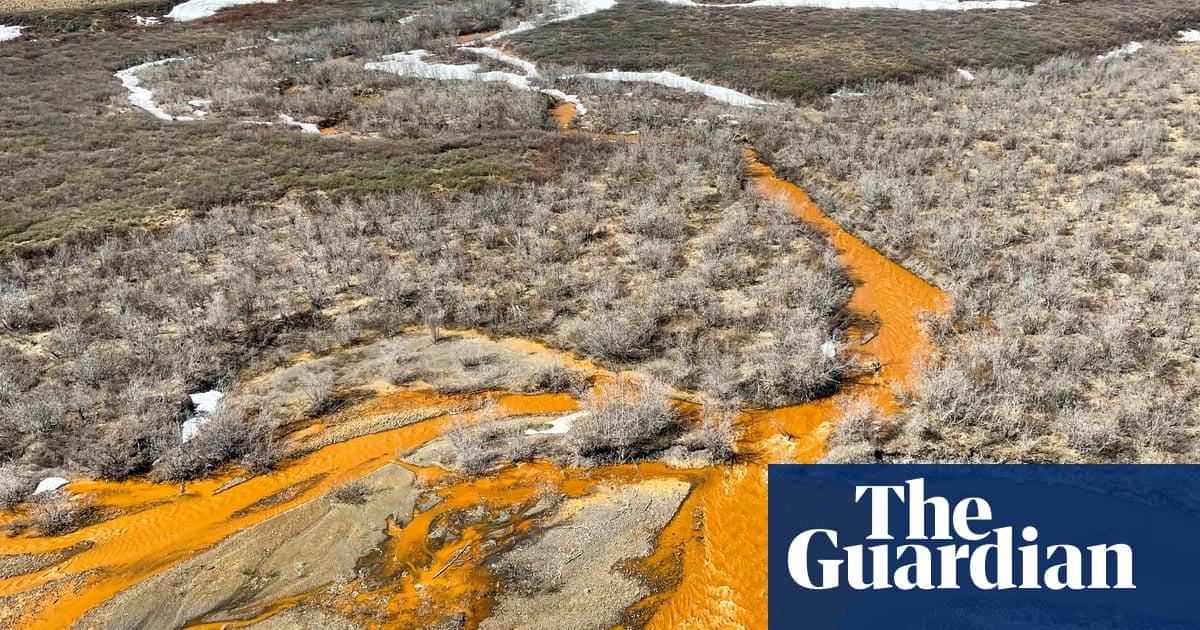- cross-posted to:
- [email protected]
- cross-posted to:
- [email protected]
Dozens of rivers and streams in Alaska are turning rusty orange, a likely consequence of thawing permafrost, a new study finds.
The Arctic is the fastest-warming region in the globe, and as the frozen ground below the surface melts, minerals once locked away in that soil are now seeping into waterways.
“It’s an unforeseen impact of climate change that we’re seeing in some of the most pristine rivers in our country,” said Brett Poulin, study author and assistant professor of environmental toxicology at University of California Davis.
The permafrost thaw is exposing minerals to oxygen in a process known as weathering, which increases the acidity of the water and dissolves metals like zinc, copper, cadmium and iron – the most apparent metal that gives the rivers a rusty color visible even from satellite images. The study highlights the potential degradation of drinking water and risk to fisheries in the Arctic.



That’s exactly what I’m saying though.
“The river turned a rusty color” doesn’t really explain anything. I’m not asking for more complexity here, I’m suggesting that less complexity may also be more informative.